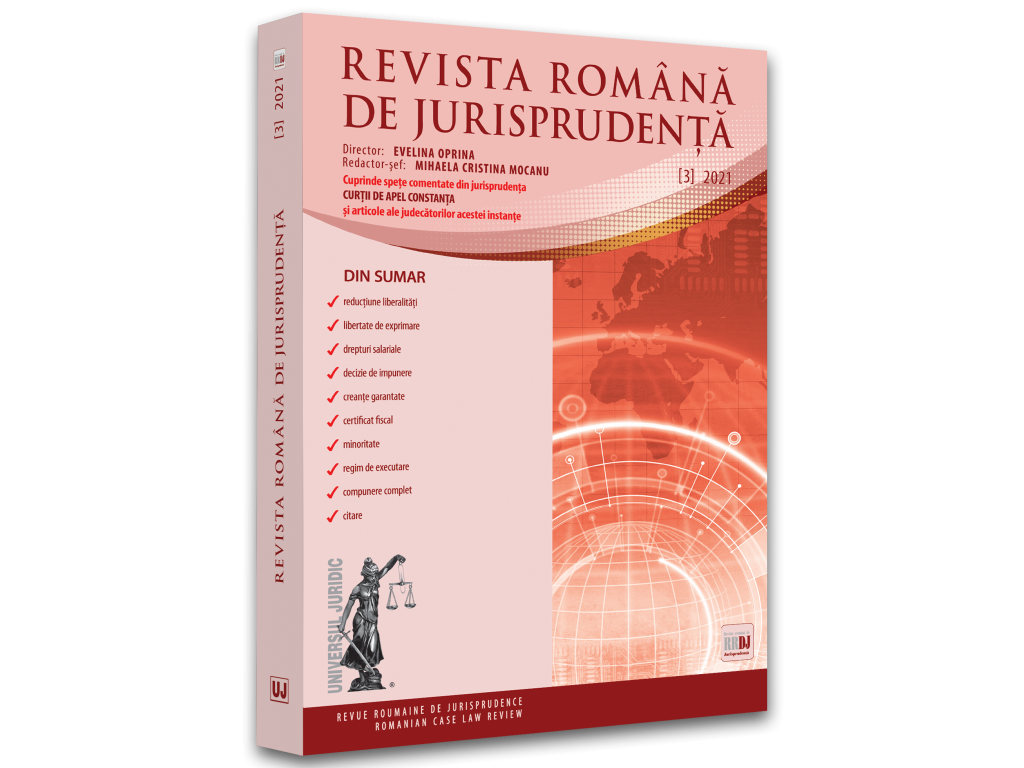4. Limitele libertăţii de exprimare în cazul oamenilor politici antreprenori. Caracterul disproporţionat al ingerinţei instanţei de judecată în libertatea de exprimare a pârâţilor
4. Limits of freedom of expression in the case of politicians - entrepreneurs. The disproportionate nature of the court's interference with the respondents' freedom of expression
Author(s): Ştefan-Alexandru TomaSubject(s): Law, Constitution, Jurisprudence, Civil Law
Published by: Universul Juridic
Keywords: freedom of expression; politicians entrepreneurs; civil law;
Summary/Abstract: The plaintiff's companies could legally sell protective masks of any kind and at any price, in the absence of a regulated maximum price, but, given the applicant's status as a politician, which he did not contest, he assumed the fact that journalists, including the respondent P.I., will analyze his actions more carefully and rigorously and will „sanction” him for his only profit oriented conduct, specific to an entrepreneur, but not to a politician, from which the citizens expect to show civic spirit and empathy, in the context in which it is commonly known that at the beginning of the pandemic period the protective masks were insufficient in quantity and had high prices. The only unreal information inserted in the two articles published by the respondent P.I. is the one referring to the existence of some pharmacies, which constitute working points within the meaning of Law no. 31/1990, of the companies in which the plaintiff has the quality of associate and manager, in the T. commune. However, this single unreal information is not sufficient to admit the petition and to order against the respondents the measures requested by the plaintiff, as it would not respect the proportionality of the interference of a public authority, namely the court, in the freedom of expression of the respondents. Admitting the petition as formulated, under the conditions set out above, would have a strong deterrent effect on both the respondent P.I. and other journalists, which could prevent them from writing about topics of public interest in the future, such as the sale of masks protection, for fear of being exposed to legal consequences.
Journal: Revista Română de Jurisprudenţă
- Issue Year: 2021
- Issue No: 03
- Page Range: 45-51
- Page Count: 7
- Language: Romanian
- Content File-PDF

